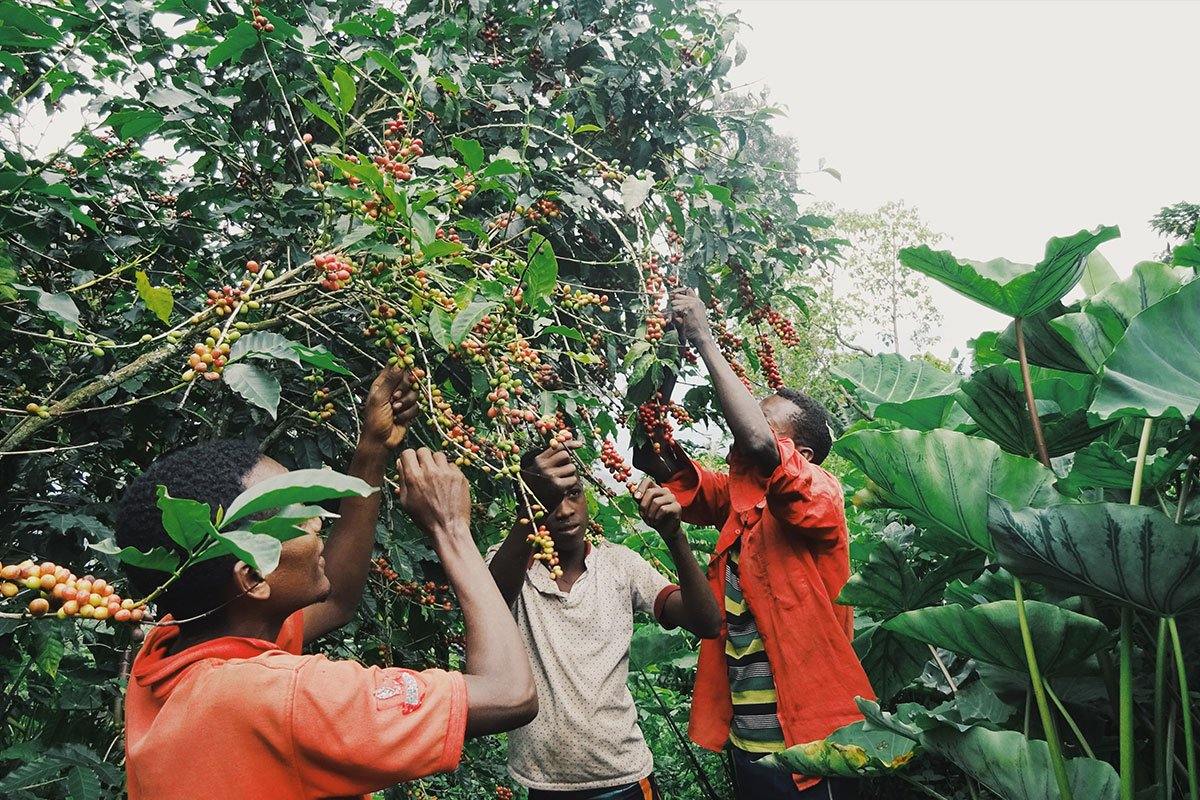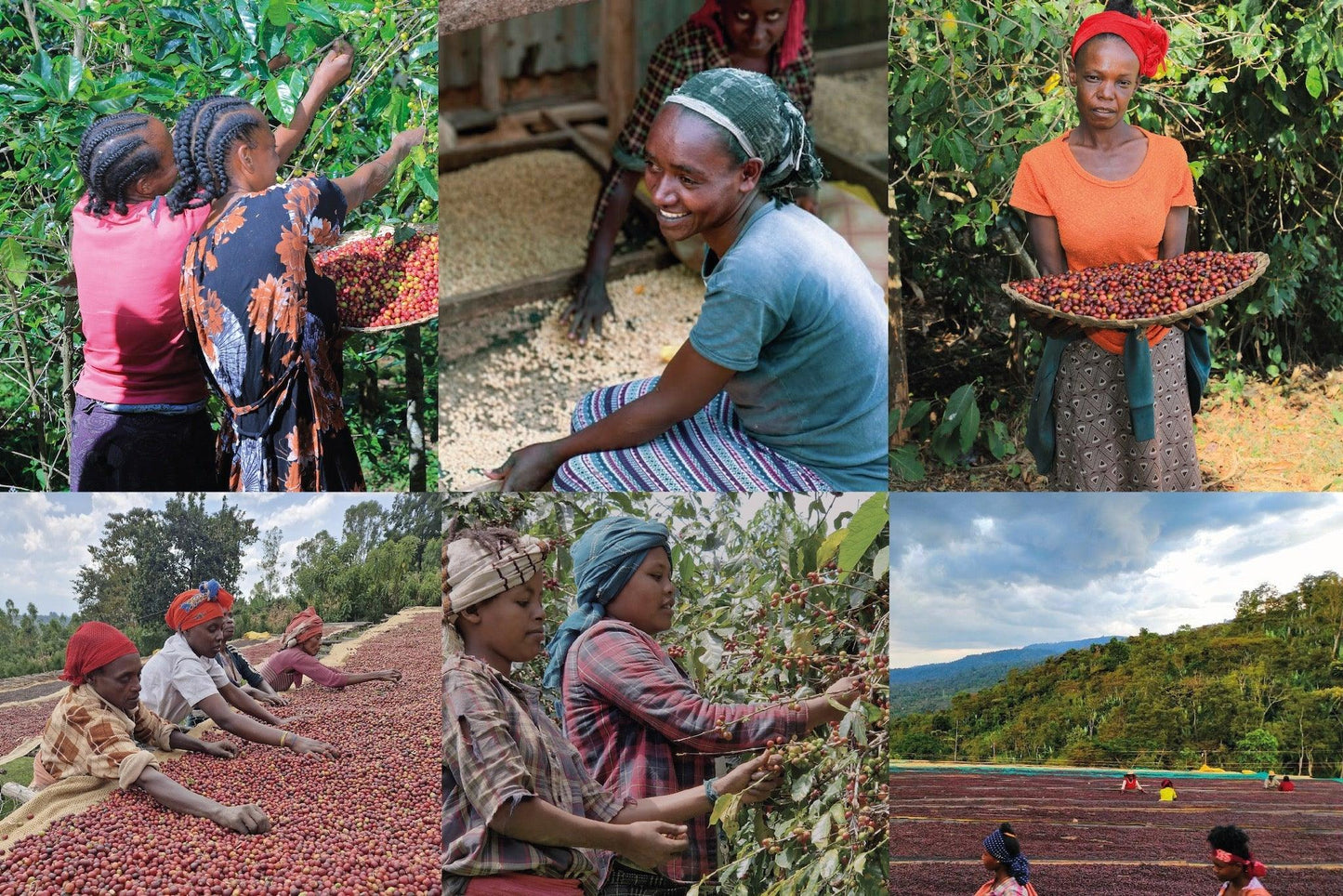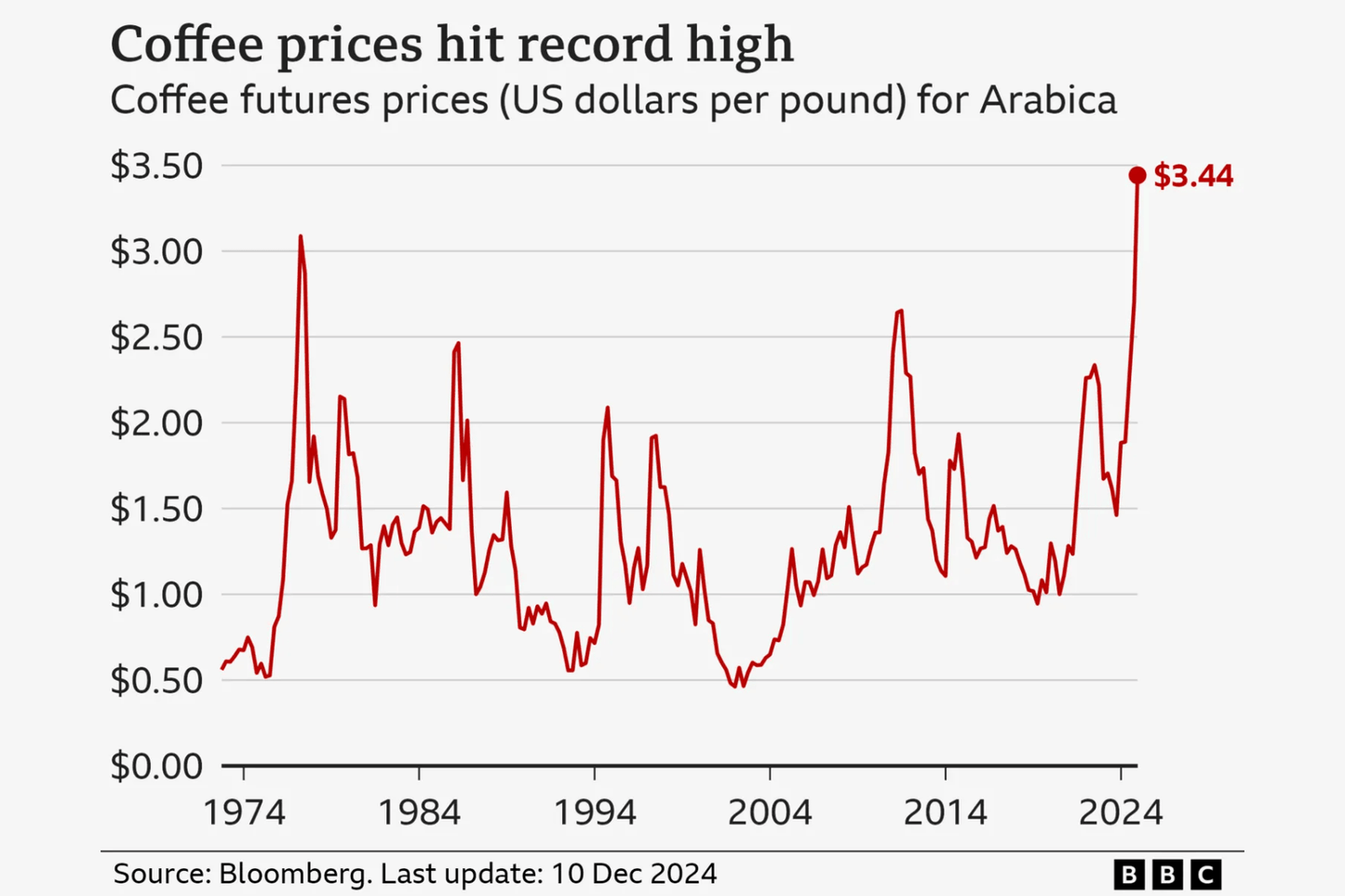Ethiopia has the most varieties of wild Arabica, and for a very simple reason: it is believed to be the birthplace of all coffee, the heart and soul of coffee Arabica. The coffee plant has been growing there for hundreds and hundreds of years and consumed by people for as many years as well.
This is important because it means there is a wide range of flavor profiles among Ethiopian coffees. The country has seven main coffee-producing regions, after which the coffees are named: Harrar, Sidamo, Yirgacheffe, Limu, Lekempt, Jimma, and Guji. And each one has a specific cup profile, thanks to the diverse landscapes and environment that affect the coffee when it grows. We talked extensively about this in the article, exploring Ethiopian regions and coffee origins.
The Guji region of Southern Ethiopia
Both of our new coffees come from the Guji zone - a part of the Oromia region - in the southern part of Ethiopia. The beans are grown in a forest jungle environment with an altitude of 1,500-2,350 meters above sea level, giving the beans plenty of taste.
The region of Guji is named after a tribe of the Oromo people who have roamed the mountains for thousands of years. It is located next to the other two well-known coffee regions named after Sidama and Yirgacheeffe. In fact, the Sidama region is where Impact Roasters founder Daniel comes from and where he grew up. You can try coffees from these regions in our roasteries, as we have them as Worke, Saba, Beza, and Nehi coffees.
Interestingly enough, Guji used to be part of Sidama region before. However, since 2002 they separated and formed the Guji zone. Ever since, the Guji area has been on the rise as one of the greatest coffee-producing zones in the world, living up to the reputation of Ethiopian coffees. Even though Guji coffee is geographically close to Sidama, they taste nothing like each other, being quite distinct on their own.
The land of the Guji is like heaven for cultivating coffee as the landscape is mountainous with rich and fertile volcanic soil for coffees to flourish. One can expect very different profile coffees from the same region, as the Guji landscape is diverse. This gives the coffee plants rich soil, enough rainfall, and enough shadow to give the plants the perfect temperature to grow. Well, that's the case with all the coffee regions in Ethiopia.
What makes Guji coffees so special, and why should you be excited to taste them?
This region's coffees are known for their smooth, floral notes and exquisite flavor and body. However, the taste can significantly depend on the area and the coffee processing method.
Wet-washed procced coffees tend to be more bright and lively with more fruit and brightness than your average cup. In contrast, most of the sundried coffees from Guji are surprising in flavor yet delicate and nuanced with honey and spicy aromas.
You can now try both wet-washed and sundried processed coffees from the Guji region and see it for yourself. Both will be available as light, medium, and dark roast and can be bought online or at our roastery at Valby st.
Did you forget what the difference is between wet-washed and sundried and what it does to the taste of the beans? Or are you not sure which roast to pick? Maybe you even want to try out a new brewing method for the new beans? Check out our coffee and brewing guides and the blogpost about how to process coffee.





